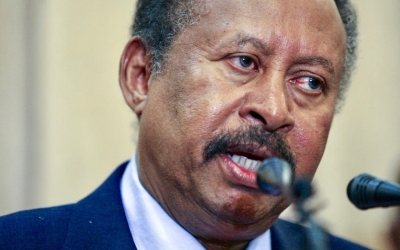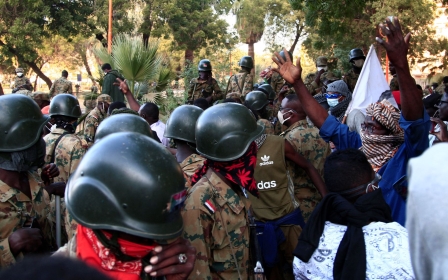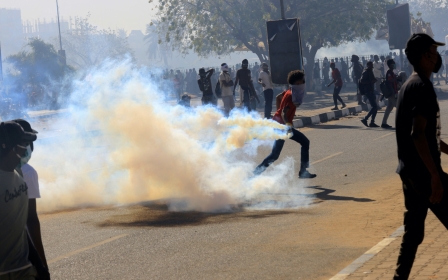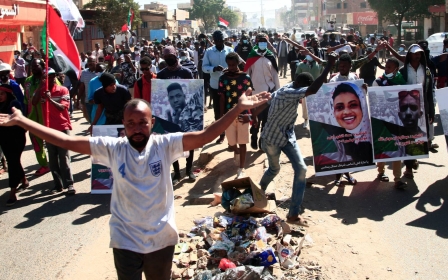Sudan's PM Hamdok resigns amid deadly crackdown on anti-coup protesters
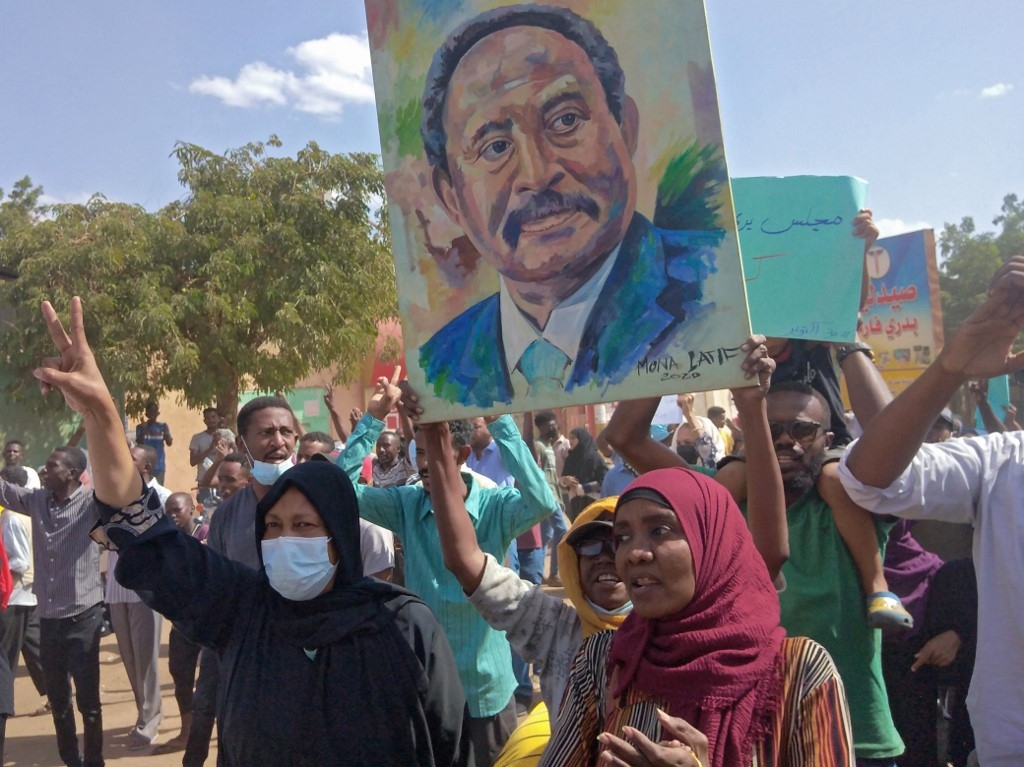
Sudanese Prime Minister Abdalla Hamdok has resigned from office amid security forces' deadly crackdown against anti-coup protesters across the country.
Hamdok's resignation comes less than two months after he was reinstated as part of a political agreement with the military.
In a televised speech on Sunday, he said a roundtable discussion was needed to come to a new agreement for Sudan's political transition to democracy.
"I decided to give back the responsibility and announce my resignation as prime minister, and give a chance to another man or woman of this noble country to ... help it pass through what’s left of the transitional period to a civilian democratic country," Hamdok said.
The announcement throws Sudan's political future even deeper into uncertainty, three years after an uprising that led to the overthrow of long-time leader Omar al-Bashir.
Hamdok told a group of political figures of his intentions to resign last week.
After the 25 October military coup led by General Abdel Fattah al-Burhan, which upended the country's democratic transition process, Hamdok had seen a surge in popularity when he was placed under house arrest.
However, for weeks he has been facing a popular backlash on the streets and among political groups that previously supported him after he made a deal with the military and was reinstated as prime minister last month.
The deal, which included the release of political detainees and the formation of an independent cabinet of technocrats, is expected to face multiple challenges; particularly on the creation of transitional institutions, the position of the army, and even the formation of a new sovereign council.
Crackdown on protesters
Meanwhile, mass anti-government protests on the streets of the capital Khartoum have continued against both Hamdok and the military.
Earlier on Sunday, security forces killed two people during protests, bringing the death toll in protests since the 25 October coup to 56, according to documentation by the Central Committee of Sudanese Doctors.
The committee said that the first man was in his twenties and died of injuries to the head in Khartoum, while the second man died of gunshots to the chest in Omdurman.
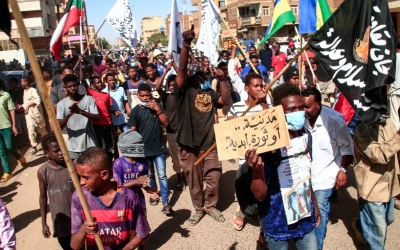
Security forces fired tear gas at anti-military protesters in Khartoum, televised images showed, as demonstrators marched towards the presidential palace in the 12th round of major protests since the 25 October coup.
Sudanese security forces deployed in large numbers on Sunday, setting up roadblocks in Khartoum amid calls for pro-democracy rallies in "memory of the martyrs" killed in recent protests.
Sudan has a long history of military coups but had been on a fragile journey towards civilian rule since former dictator Bashir was deposed in 2019 following mass popular protests.
But the country has been plunged into turmoil since military leader General Abdel Fattah al-Burhan - the de facto leader since Bashir was removed - launched his October coup, detaining Hamdok.
Hamdok was reinstated on 21 November, but mass protests have continued because demonstrators do not trust veteran general Burhan or his promise to take the country towards full democracy over time.
Middle East Eye delivers independent and unrivalled coverage and analysis of the Middle East, North Africa and beyond. To learn more about republishing this content and the associated fees, please fill out this form. More about MEE can be found here.


